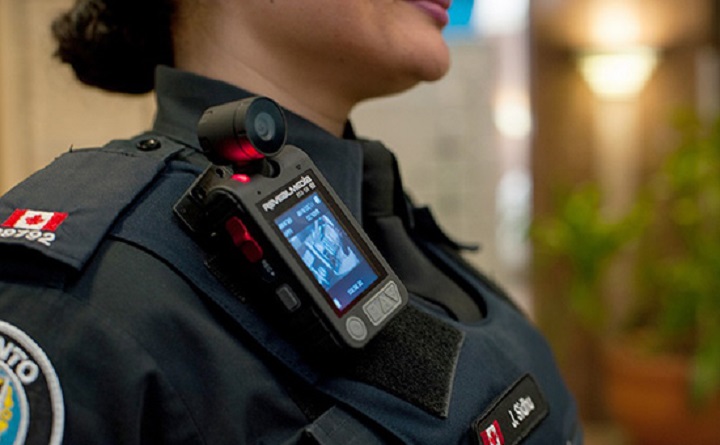In the wake of a number of high-profile deaths at the hands of police in Canada and The U.S., the Toronto Police are launching their body camera test project on May 18. But citizens are also starting to rely on their own technology to protect themselves during police encounters.

Duncan Kirkwood, the creator of ‘Hands up 4 Justice’ believes our problem isn’t necessarily police prejudice but that when prejudice does occur, those responsible are often not brought to justice.
“It’s not every police officer, there’s a bad apple in every bunch but when the good ones and the criminal justice system don’t speak up, it amplifies the fear of law enforcement”, said Kirkwood.

Get breaking National news
This why he said he designed an app to increase the accountability of law enforcement agencies. Hands up 4 Justice allows users to record audio and video of experiences with law enforcement and is able to publicize it if your phone happens to be seized by police.
‘Cop Watch’ is another app which allows users to record their encounters with police officers and upload them. Other apps of this type include Five-O, I’m Getting Arrested and Stop and Frisk Watch.
The advent of these apps indicate a growing desire to document encounters with police.
And using these apps is legal: Canadian law allows a citizen to record a police officer in a public place, except for specific instances (sensitive defense installations such as military or naval equipment).
The police might request that the video be stopped or even deleted, but a demand to stop recording is not legally binding.
Additionally, the freedom to record is protected by the Charter of Rights and Freedom’s, section 2B. Strictly speaking, the police are unable to remove, seize or obtain your recording devices so long as you aren’t interfering with their ability to work; they also can’t detain you for the act either.
Some of these same citizen rights extend to searches without a warrant. Individuals cannot be arrested for refusing a warrant-less search. If you refuse a search and it’s performed anyway, police will need to prove they had reasonable ground to do so.
- Ford government to table legislation to restrict bike lanes on city streets
- How a group of Toronto tenants turned to a risky last resort and got a ‘huge victory’
- Ontario courts are stretched to their limits. Will a new minister of bail reform help?
- Simply Delicious Recipe: Decadent snack using Ontario apples








Comments